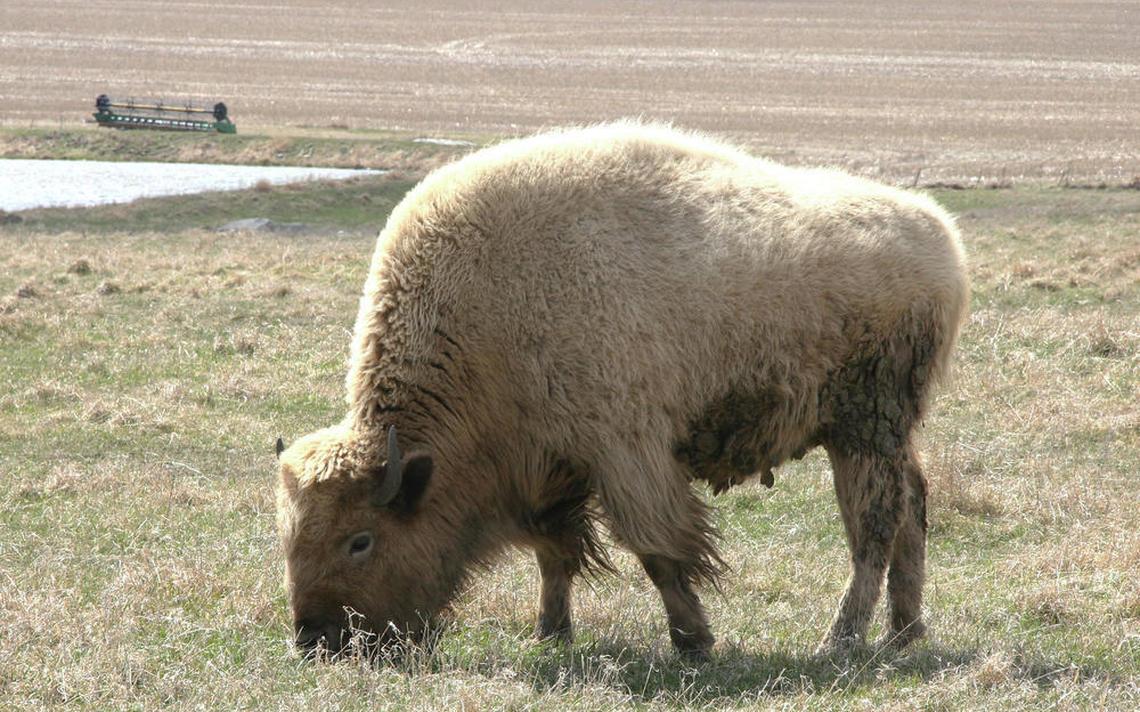The U.S. government has recommended to dismiss charges of possessing wildlife without a licence against an Ojibway man from the Nippissing First Nation residing in the Town of Attica, New York.
On Feb. 10, 2014, nine Department of Environmental Conservation officers and one Fish and Wildlife Services agent raided John Volpe’s home and confiscated 105 baby snapping turtles and dozens of stuffed birds. They also took down Eagle feathers considered sacred from his sweat lodge and tossed around a 300-year-old wooden pipe “like it was a baseball,” he said in a phone interview.
Volpe, 62, was charged with 190 state and seven federal violations of the Environmental Conservation Law.
However, on Dec. 19, the federal government recommended for the courts to dismiss the federal charges on the grounds that his Native American descent gives him the right to have those animals in his possession.
“It’s a recognition on the part of the U.S. attorney’s office that John is a practicing Native American with Native American blood coursing through his veins,” said George Muscato, Volpe’s lawyer.
Volpe’s ancestry had been in question because he had failed to produce a licence showing he’s from a federally-recognized tribe on the day of the raid.
“They did ask me for an Indian card, and at the time I asked them to show me their own nationality card,” he recalled. “I said, ‘Why are we always the only ones who have to show a card? Why should I have to show you what I am? Why don’t you carry a card?’”
Nevertheless, Volpe showed them his Métis National Council card, but they told them it wasn’t recognized in the U.S. They went on to charge him for allegedly illegally holding animal parts including Eagle Feathers, which the police desecrated by callously throwing them on the ground, said Volpe.
“I think they were trying to get me….ticked off so they could just throw me right into jail,” he said. “Because they were so disrespectful to all of the native things that I have, to all of the medicines.”
Volpe’s next court date is on Jan. 13 in Attica, when he and his lawyer will argue that the scope of the DEC (state’s) statute is “unconstitutionally broad.”
“It’s unconstitutional because it deprives him of his right to practice a religion or tradition,” said Muscato. “He is a Native American who is an adherent of the orthodox values of Native Americans. While he possesses these (animals), he did it strictly as a practicing Native American.”
Volpe was born in Barry, Ontario and has owned a sweat lodge in Attica for more than 15 years. He’s also practiced taxidermy as well as traditional animal medicine for more than 30 years, and he heals wounded animals which people from the surrounding Seneca and Tonawanda reserves bring to him. He’s even cooperated with the DEC in the past by providing them documented samples of contaminated water and diseased animals with deformities.
But in 2005, the DEC began constantly visiting his sweat lodge and interrupting his ceremonies, demanding he show his licence. Finally in 2006, hoping to stop their unwelcomed visits, Volpe took and passed the state’s Wildlife Rehabilitation Exam, the first step to acquiring a licence. But when he took that to the DEC, he was blocked.
“The (DEC) guy said for him to give me my rehab licence I have to get a federal permit,” he recalled. “And I said I already talked to (the feds), and they said they can’t give me a permit until I get my rehab licence.”
Officials from the DEC did not respond to questions before going to print.
In 2008, Volpe began documenting a series of spills from O-At-Ka Milk Products onto Chapin Lagoon, in Batavia, a town about 20 minutes north of Attica. He presented the DEC with reports of higher than normal pH levels in the water, which reduce its quality, high water temperatures which interrupted animals’ hibernation cycles, causing them to die, and even photographs of 144 fish and over 60 turtles found dead as a result of the various spills, which have been documented on the DEC database.
In April of this year the DEC sent a notice of violation to O-At-Ka, advising them they were in violation of the DEC’s State Pollutant Discharge Elimination System (SPDES) permit and three environmental conservation laws. The letter covers “repeated spills of milk and cleaning solution” which have caused a “contravention of water quality standards for pH” on “at least six separate occasions” as well as “fish kill of over 100 fish of various species.”
The company was asked to complete a facility review, to submit a copy of its best management practices and list of responses and corrective action plans by May 2014. It was also asked to install a continuous recording pH meter. David Crisp, director of business and development at O-At-Ka, said they worked closely with the DEC to ensure all of these requirements were met.
However, Volpe said the letter did not go back far enough, despite there being ample documentation showing spills going back to at least 2008. Volpe has also found discoloured fish missing their slime and scales, others blinded and many with non-functioning gills; he’s found beavers and water snakes with tumours causing them to suffer from ‘telescoping’ – a condition, caused by blockage, where the small intestine is sucked into the bigger one.
He said these are all results of high levels of hydrogen peroxide and sodium hydroxide which continue to be dumped into the water by O-At-Ka Milk Products, and added that there’s no evidence as of yet that any action, fines or penalties have been taken against the company.
“Nothing’s changed,” he said, referring to the fact that the pH levels continue to register at around 9.0, which sits at the extreme end of the ‘normal’ scale.
“But if you look at pH levels, very little can actually live in a 9.0 pH. Seven-point-zero is actually balanced. Once you start to get 9.0, you’re really exceeding…what wildlife can actually handle,” he said.
As of Dec. 17, Volpe recorded the water temperature at 67 degrees Fahrenheit, though the normal for this time of the year should be at around 30, he explained.
“Which means that turtles, frogs and snakes do not hibernate. So…they use up all their fat reserves and usually end up dying through the winter because the water never freezes.”
Chris Krtanik, Volpe’s life-long friend, said Volpe has constantly helped the DEC and has worked hard to care for wounded wildlife.
“He’s honest in what he’s doing. He lives what he is and there’s nothing that he’s done that jeopardizes the law,” he said, adding that he suspects the feds were scared of losing a case that could set an important precedent.
“I think they were fearful of losing the case [because] that would’ve strengthened the next person’s case,” he said. “And they probably realized John could’ve won with a jury trial.”
If Volpe is convicted, he faces up to 30 days in jail and a fine of up to $250 for each violation.
“But I can’t imagine that the judge would not dismiss the charges,” said Muscato.







